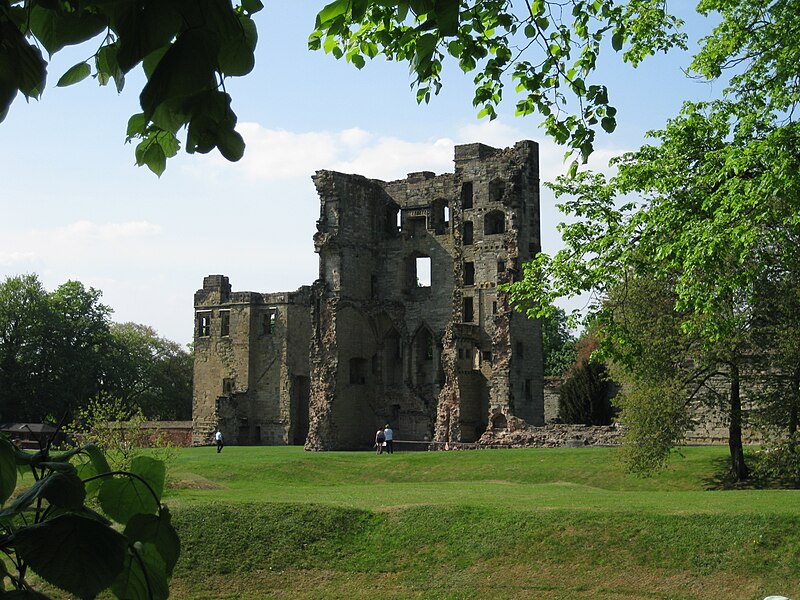Get Castled Out in Birmingham
Did you know that Birmingham is Britain’s second-largest city? It gets lost in the shadow of London, but there is much to see and do here. Birmingham is a city rich in history, perfect for exploring the past. The industrial revolution started here, but history goes much further back; within an hour’s drive, you’ll find more than 18 (!!) castles (and Shakespeare’s home). It’s easiest if you base yourself in Birmingham, and then explore each day. I’d give yourself at least a week if you can, so that you can castle for part of the day and then explore the rest of what Birmingham has to offer the rest of the time. Make a point to visit Birmingham and dig into the noble past – I’ve got 18 castles listed here, but here is information and a map with dozens more.
Let's get Castled out in Birmingham!
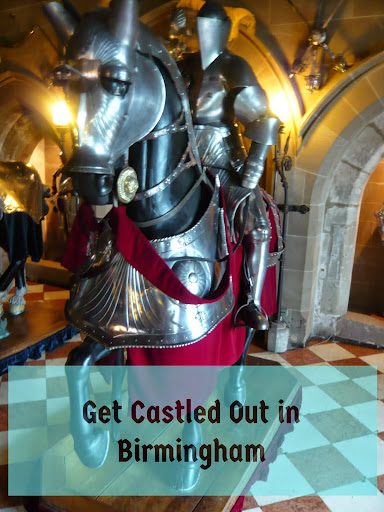
Warwick Castle Horseman. Photo Wikimedia Commons: Chensiyuan, adapted by Wandering Educators
Warwick Castle
Celebrating its 1100th anniversary this year (914-2014), Warwick Castle has a long and rich history. Located in Warwick, the location was first a Saxon fortification of the daughter of Alfred the Great (Ethefleda), then a castle built at the command of William the Conqueror. Take a look before you go, with the 360 panorama camera. Besides shows and events, there’s much to explore - even a dungeon!

Photo Wikimedia Commons: Gernot Keller
Tamworth Castle
Tamworth Castle is a true medieval Castle, where you can explore 15 rooms from a variety of periods (Medieval, Tudor, Stuart, Victorian, etc.). Of particular interest to visitors are the ghosts. Perhaps the ghosts are Saxons from the 7th century, when Tamworth was the heart of the kingdom of Mercia, and a royal home. Or perhaps from medieval times, when owner Robert the Justice deserted King John, and the castle was ordered to be demolished. In Tudor times, the owners fled the castle during the English civil war, which was later garrisoned for King Charles I. Or perhaps the ghost is from Victorian times, when a spinster lived and died in the castle.
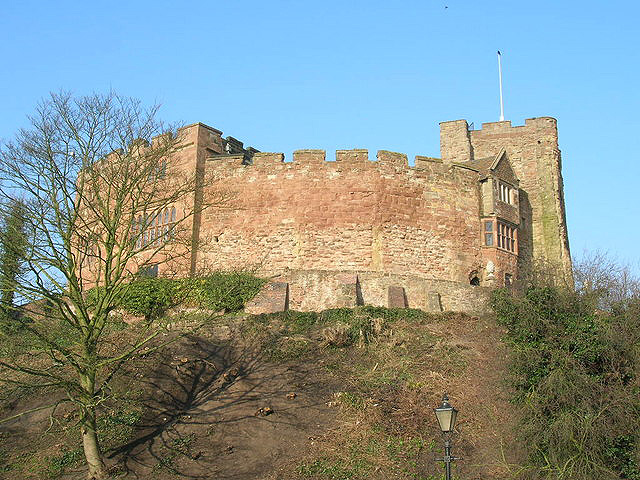
Photo Wikimedia Commons: Stan
Kenilworth Castle
What can you find at Kenilworth Castle? Ruins! And history, of course. First established in the 1120s, it was added to in the 13th century by King John and Henry V, among others. In 1575, Robert Dudley, granted the castle by royal decree, turned it into a great renaissance ‘prodigy house’ to impress his love, Queen Elizabeth I. it was once the heart of a 4,000 acre hunting ground. Of special interest is the recently recreated Elizabethan garden, which was lost for 400+ years. Kenilworth Castle was also the setting of Sir Walter Scott’s book, Kenilworth, about Dudley and the Queen.
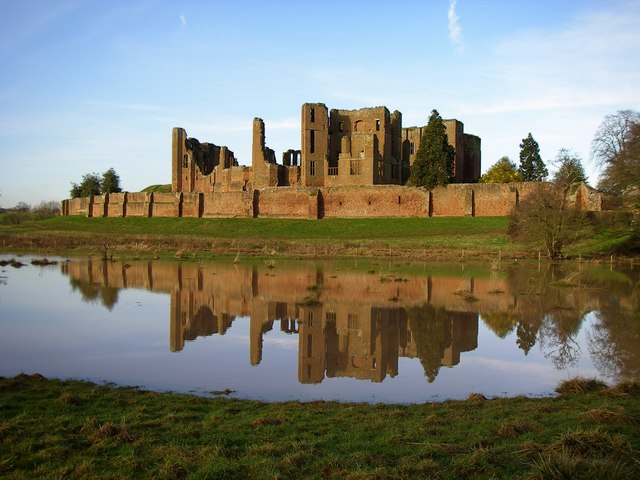
Photo Wikimedia Commons: Derek Billings
Stafford Castle
Another ruin, Stafford Castle was originally the site of a Norman timber fortress, built in 1100. In the 14th century, the Earl of Stafford built a stone keep atop the hill; in 1444 Stafford was named Duke of Buckingham and the castle continued to grow. The castle waxed and waned, being destroyed, rebuilt, abandoned, and now restored. Here, you can see one of the best surviving archaeological examples of Norman earthworks, explore 26 acres of history, and meander through a historic medicinal herb garden.
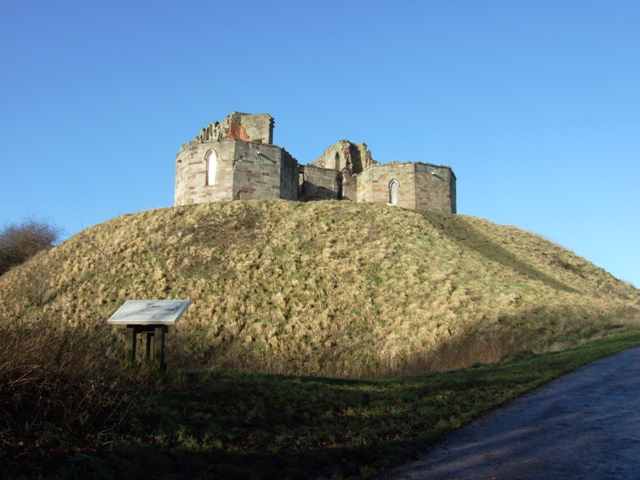
Photo Wikimedia Commons: Simon Huguet
Ashby de la Zouch Castle
This castle started as a manor house (12th century) and was later built into a castle in the 15th century by William, Lord Hastings. was a royalist stronghold during the Civil war; afterwards, it fell into disrepair. Now in ruins, people flock here to see the setting of Sir Walter Scott’s novel Ivanhoe.
Photo Wikimedia Commons: Pahazzard
Elvaston Castle
At first an estate held by Shelford Priory, in 1538 the estate was sold to Sir Michael Stanhope (whose son was High Sheriff of Derbyshire). In 1633 a house was built, and later extended in the early 19th century. During WWII, the house was used as a teacher training college, then left vacant. Today, it is a county park. The house is unsafe and is closed; no repair has been scheduled. Some say the house is haunted by several ghosts, including the Grey Lady and the White Lady. Take a virtual tour and see if you spot either of them!

Photo Wikimedia Commons: Chris J Dixon
Ludlow Castle
Ludlow Castle (now in ruins) was built in 1086 by Walter de lacy, who came here with William the Conqueror. The castle changed hands many times, including those of Roger Mortimer, 1st Earl of March, who was at the time the most powerful man in England. Prior residents included the Duke of York, the Prince of Wales and his brother (Edward IV’s sons, made famous by Shakespeare as the Princes in the Tower), Prince Arthur and his bride Catherine of Aragon, and Mary Tudor (daughter of Catherine of Aragon and her next husband, Henry VIII). Today the castle is an important monument, and visitors can see a Shakespearean play performed within the Inner Bailey each summer as part of the Ludlow Festival.
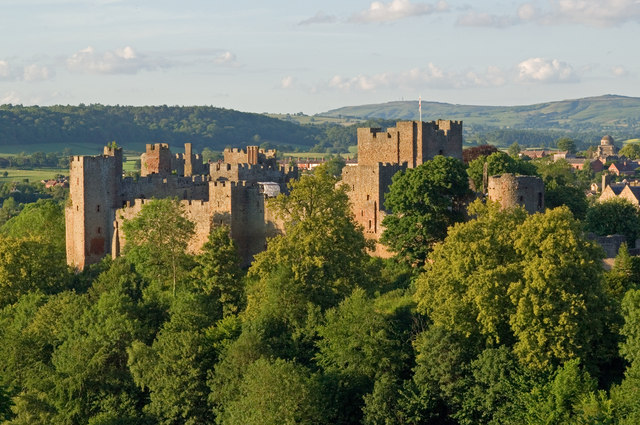
Photo Wikimedia Commons: Ian Capper
Other local castles include:
Maxstoke Castle

Photo Wikimedia Commons: Steve Wilson
Astley Castle
Photo Wikimedia Commons: Keith D
Sudeley Castle

Wikimedia Commons: Taliesin Edwards
Broughton Castle

Wikimedia Commons: neil hanson
Eastnor Castle
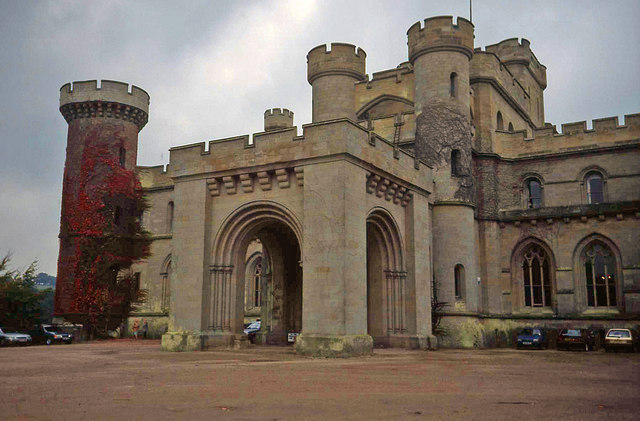
Wikimedia Commons: Trevor Rickard
Nottingham Castle

Wikimedia Commons: Skywalker PL
Rockingham Castle

Wikimedia Commons: Mat Fascione
Blenheim Palace

Wikimedia Commons: Blenheim Palace
Belvoir Castle
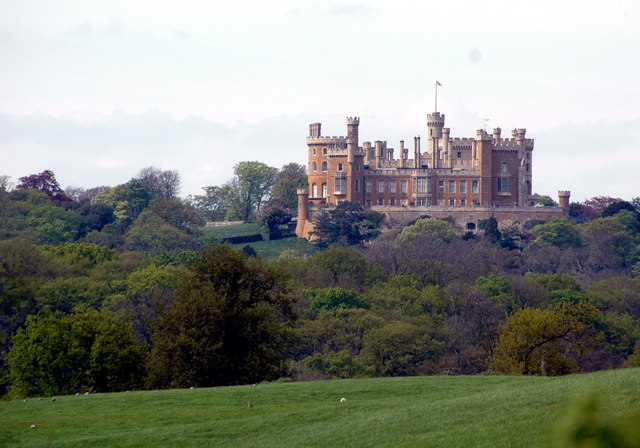
Wikimedia Commons: Carolyn Mansfield
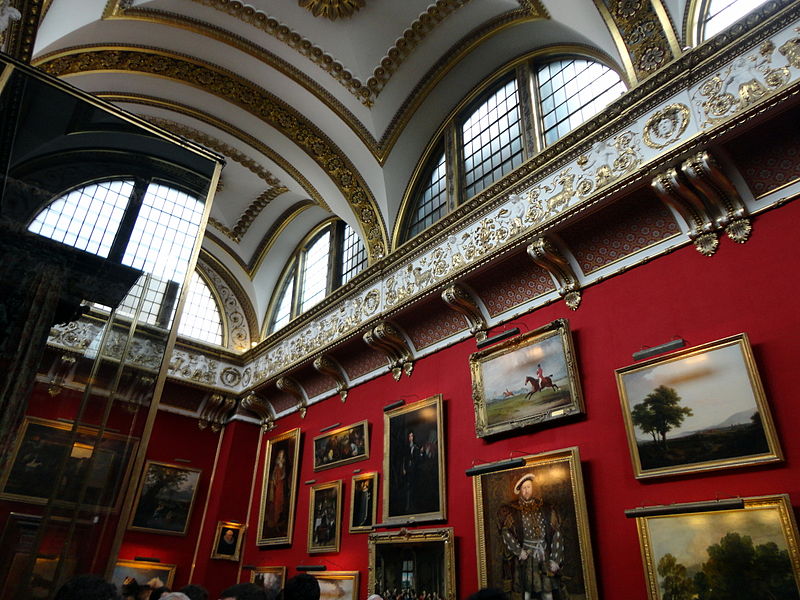
Wikimedia Commons: Fastily
Beeston Castle
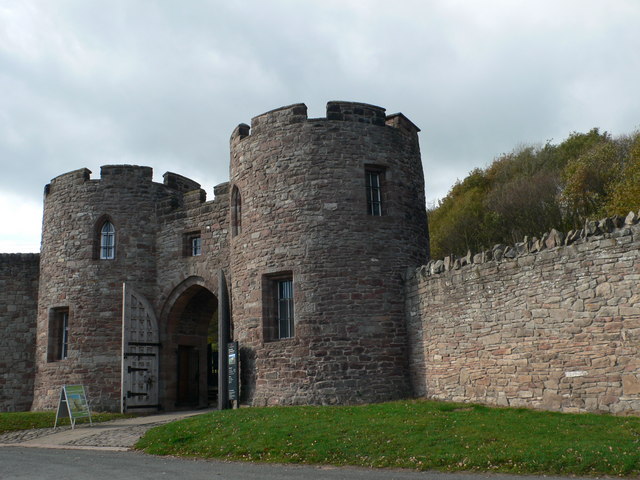
Wikimedia Commons: Eirian Evans
Berkeley Castle

Wikimedia Commons: Robin Poitou
Which castle will you visit first?


